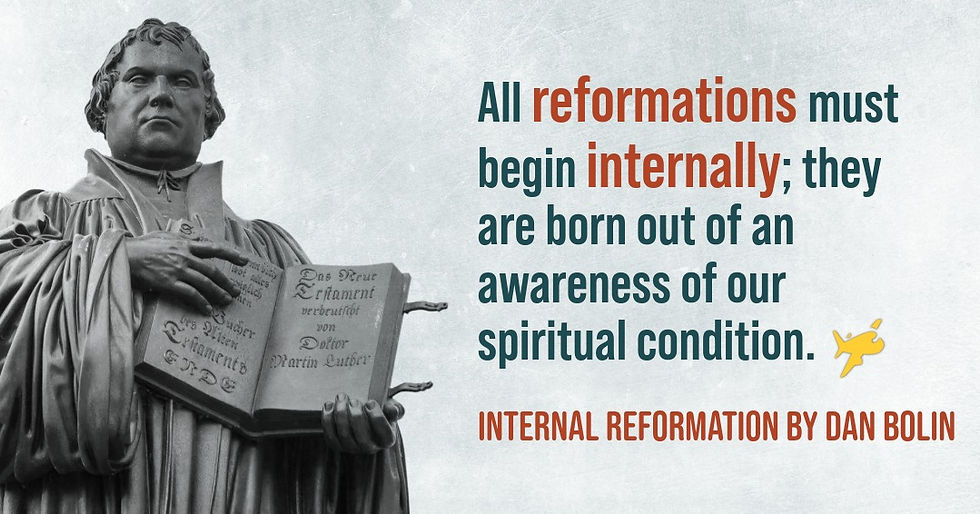Internal Reformation
- Dan Bolin

- Sep 1, 2025
- 2 min read
Nº 370
September 2, 2025
The next few weeks I’ll be on a study tour in Switzerland and Germany exploring the roots of the Protestant Reformation. So, the next three Tuesdays I will share thoughts I have along the way!

One is not righteous who does much, but the one who, without work, believes much in Christ. The law says, 'Do this,' and it is never done. Grace says, 'Believe in this,' and everything is already done. - Martin Luther
Most scholars point to October 31, 1517, as the start of the Reformation. That day Martin Luther nailed his 95 Theses to the door of the church at Wittenberg.
The Reformation, however, began well before Luther publicly posted his concerns about the Church’s theology and morality. Preceding this external expression, Luther struggled internally with a profound sense of alienation from God. He questioned how he could be cleansed from his sins and become righteous before Him.
As he studied Romans, he grasped the power of God’s grace and the assurance of his right standing before God. This confidence was not based upon his good works, but upon the gift of God’s righteousness being credited to him.
All reformations must begin internally; they are born out of an awareness of our spiritual condition. “You were dead in your transgressions and sins.” (Ephesians 2:1) And culminate in a dependence upon God’s grace. “For it is by grace you have been saved, through faith ---and this is not from yourselves, it is the gift of God --- not by works ...” (Ephesians 2:8)
Lead a personal reformation today and enjoy God’s forgiveness of sin, and His gift of a righteous standing before Him.
Excelsior,
Dan Bolin











